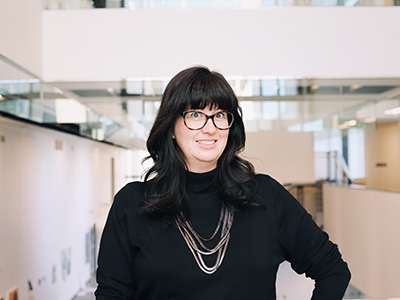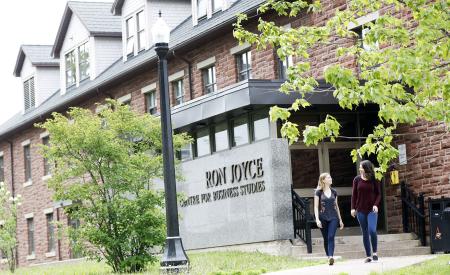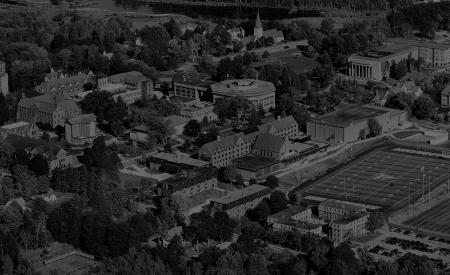Meet Shelly — Mount Allison’s Manager of Academic Support
 Shelly Colette came to Mount Allison on a one-year contract to teach religious studies.
Shelly Colette came to Mount Allison on a one-year contract to teach religious studies.
“One year extended into two and I fell in love with Mount Allison and Sackville and I stayed,” she says. “I’m from Moncton originally, so coming to Mount A was a little bit like coming home.”
That was six years ago. Colette’s role has evolved in that time. Although she still teaches part-time in religious studies, her main focus is her work as the University’s manager of academic support. Colette runs Mount Allison’s Writing Resource Centre, the Student Success Course, study skills workshops, the University’s peer tutor program, and Peer Assisted Study Sessions (PASS), in addition to offering one-on-one consultation with students facing academic challenges.
Colette, who began her studies at St. Thomas University and completed her PhD in religious studies at the University of Ottawa, says her work in academic support began long before she came to Mount Allison.
“It started with an interest in writing and pedagogy,” she says. “I worked in a writing centre during my undergraduate degree and when I teach I am very concerned not just with what students are learning, but how they are learning it and why.”
Colette’s background uniquely positions her to develop academic support programming.
“I was a student myself for 15 years, so I understand many of the frustrations that students face, how hard it is when you hit a brick wall, and the kinds of support that students need to climb the wall or break it down,” she says. “And as a faculty member, I also understand the constraints that faculty members are under because they have a responsibility to their discipline as well as to their students.”
Academic support is a busy place during the school year. Colette says the Writing Resource Centre alone averages between 500 and 600 appointments per year and about 150 students participate in the Student Success Course.
This year she has been adding services for specific groups of students, in particular first-generation students — those who are the first in their families to go to university and who may not be as familiar with the available services.
“Another beauty of a small university is if I see a number of students coming through my door with the same challenges, I can develop programming to address that. We suit the programming to the students’ needs,” she says.
Colette is also piloting a PASS (Peer Assisted Study Sessions) program this term, offering regular study sessions for three particular courses that many students find challenging.
“I think my favourite part of this work is when something clicks for a student — when we find a solution that helps them get more out of their classes,” she says. “When they come to me I want them to leave with a plan of action, something concrete they can do to help them with whatever they are struggling with.”
Colette says another rewarding part of her job is getting to mentor the students who work as tutors and study session leaders, and helping high-achieving students develop stronger academic and leadership skills.
“I think it is work that a lot of strong students find fruitful and engaging. We often learn best by teaching,” she says. “Academic support doesn’t only help students who are struggling, it also offers valuable work opportunities for good, strong students. I’ve always got my eyes open for students who want to work in these programs.”
The Academic Support Office is open throughout the academic year. The Student Success Course takes place on a weekly basis during the winter term. Appointments with the Writing Resource Centre can be booked online through Moodle. Further information about programming can be found on the Academic Support page.




